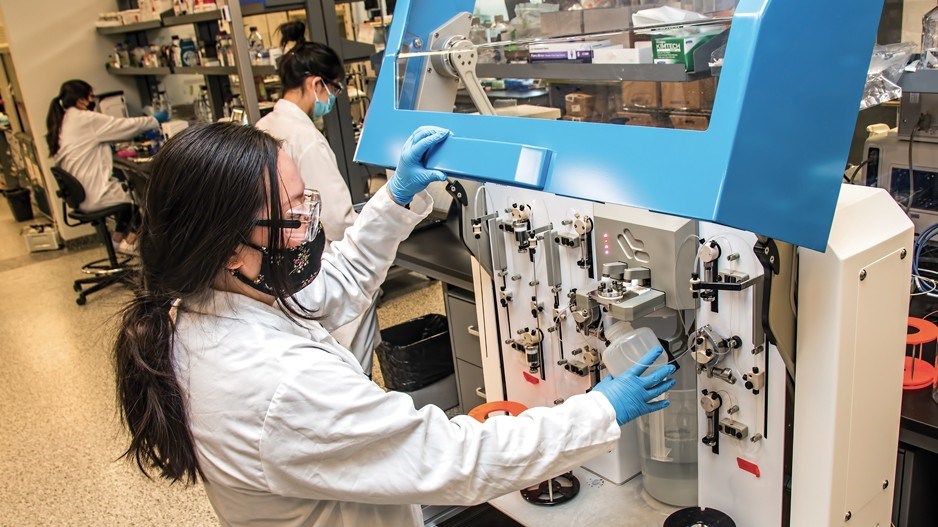A botched deal last year between Canada and Chinese vaccine manufacturer CanSino Biologics Inc. laid bare this country’s vulnerabilities amid efforts to devise a proper immunization plan.
Faced with Canada’s limited vaccine manufacturing capacity, the federal government began putting $44 million into revamping a National Research Council facility in Montreal to ensure it could produce CanSino doses at home.
But with the collapse of the CanSino deal and Canada being slow to procure competing vaccines, it has been relying on Pfizer Inc. (NYSE:PFE) and Moderna Inc. (NYSE:MRNA) shipments produced in Europe.
If the AstraZeneca plc vaccine is approved next as expected, those doses will be sourced primarily from the U.S.
With Canada facing sharp vaccine shortages in January and February, Ottawa revealed last month it’s tapping Vancouver-based Precision Nanosystems Inc. (PNI) to boost domestic vaccine manufacturing capacity in the coming years.
Plans for PNI’s new $50 million biomanufacturing facility in Metro Vancouver are underway after the federal government revealed last month it was earmarking $25 million for the endeavour.
“The government support … has been a great catalyst to be able to bring that to fruition,” PNI CEO James Taylor told BIV.
PNI produces technology to develop and manufacture genetics medicines that deliver RNA or DNA directly into cells to treat disease at its molecular root cause.
Last fall, Ottawa earmarked $18 million for the company to pursue its own COVID-19 vaccine, which is expected to enter Phase 1 of clinical trials this summer.
PNI specializes in a class of vaccines known as self-amplifying RNA vaccines. These have the potential to create more potent vaccines as they amplify the signal, allowing PNI to manufacture more doses for less volume.
The new 40,000-square-foot facility, expected to be completed in March 2023, would be able to produce up to 240 million of those self-amplifying RNA vaccine doses.
Moderna and Pfizer, meanwhile, have been manufacturing conventional messenger RNA (mRNA) vaccines.
Taylor said PNI’s facility would be able to manufacture two million to 24 million mRNA doses – a significant difference compared with the manufacturing capacity for a self-amplifying RNA vaccine.
With PNI’s facility slated to open in 2023, the Vancouver company’s expanded manufacturing capacity does not fit into the federal government’s timeline for vaccinating all Canadians by September 2021.
Instead, it’s poised to play a part in future responses to health crises.
“This facility will be utilized for the production of both therapeutics and vaccines applied to cancer, infectious disease, rare diseases.… And then in times of pandemic needs, it will be utilized for pandemic response,” Taylor said. “If [PNI’s COVID-19 vaccine] came earlier than [when] the facility was ready for us, our company already partners and provides our technology to contract manufacturing organizations all over the world.”
Taylor said the design uses modular clean rooms.
Anyone walking into the new facility will encounter a controlled environment in which rooms have dedicated equipment for each step of the manufacturing process.
PNI boasts a head count of 120 workers, and Taylor said he plans to hire more than 50 additional workers by the end of the year.
Upon announcing the $25 million earmarked for PNI’s facility, Prime Minister Justin Trudeau said the arrangement will offer the country more domestic manufacturing certainty for years to come.
“We don’t know what the future looks like a year from now, two years from now, three years from now,” he said. “What we’re very clear on is Canada will be developing domestic manufacturing, so regardless of what could happen in the future, we will have domestic production.” •




